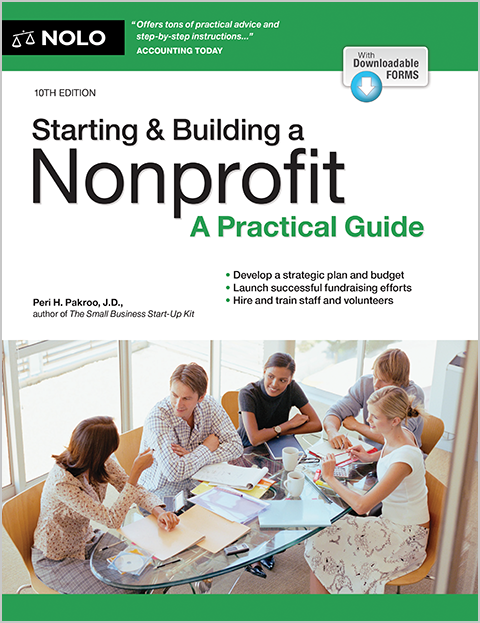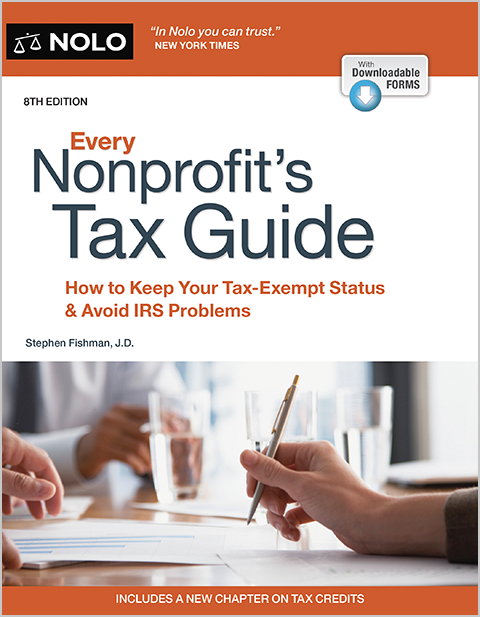Make sure you have an accountable plan in place if you want to reimburse volunteers for their expenses.
Some nonprofits reimburse their volunteers for expenses. This may be out of a sense of fairness or to encourage people to volunteer, particularly those who might not be able to afford to work for free otherwise. Out-of-pocket expenses a nonprofit might reimburse include:
- travel to and from the place of volunteering
- postage, telephone calls, copying, and similar costs
- equipment or protective clothing
- attendance at training events and courses, and
- long-distance travel, meals, and lodging while on nonprofit business.
As long as the reimbursements are done properly, there should be no tax consequences for reimbursements for the nonprofit or its volunteers. The key to keeping them tax free is to make sure you have an accountable plan that follows IRS rules and that all reimbursements are made in accordance with that plan. If they are, these payments don't even need to be reported to the IRS.
What Is an Accountable Plan?
An accountable plan is a plan that follows IRS rules on reimbursing employees or volunteers for business-related expenses. The IRS has adopted rules about reimbursements because these types of payments can be so easily subject to abuse. For example, someone on a business trip to Seattle might try to include in their business expenses the cost for a sightseeing trip to an island. To avoid these kinds of problems, the IRS has adopted a strict set of rules that must be followed for reimbursements to be a nontaxable and nonreportable event.
To pass muster with the IRS, the accountable plan must require that:
- any expenses being reimbursed are incurred for a nonprofit business purpose
- the volunteer adequately accounts for the expenses within a reasonable period of time—no more 60 days after the expense was incurred, and
- the volunteer returns any amounts received in excess of the actual expenses incurred within a reasonable period of time—no more than 120 days after receipt of the excess money.
If you have an accountable plan that complies with these rules, then any payments made under the plan are not taxable and need not be reported to the IRS.
There are different ways a volunteer might pay or seek reimbursement for expenses. In most cases, the volunteer will pay the expenses at the time they are incurred and then seek a cash reimbursement from your nonprofit. However, in some cases, the volunteer might get an advance payment to cover anticipated expenses. This is fine so long as it is not paid more than 30 days before the expense are incurred. Alternatively, a volunteer could be given a company credit card to use. There may also be instances where a volunteer handles expenses through a direct billing to the nonprofit. Using a company credit card or direct billing doesn't involve an actual reimbursement of funds to the volunteer because the expense is paid directly by the nonprofit, but the same rules apply as for an actual reimbursement where the volunteer pays an expense out of his or her own pocket and is later repaid by the nonprofit.
Business Expenses Only
This is a threshold requirement. The expenses being reimbursed must be directly related to the work or services provided by the volunteer. The IRS doesn't want people to get reimbursed for any personal, family, or other nonbusiness expenses along with their business expenses. For example, a volunteer traveling to Las Vegas on nonprofit business cannot be reimbursed for a trip to the Grand Canyon. That is a personal expense that the volunteer must pay for out of his or her own pocket. Or, a volunteer could decide to bring a family member along on a business trip. As long as there is no added expense, that is okay. Otherwise, any expenses paid for by the nonprofit that are not business-related or are incurred on behalf of a family member or someone other than the volunteer must be included as taxable income for the volunteer and reported to the IRS.
Adequate Accounting
It is crucial to have good records for expenses to be reimbursable under an accountable plan. At a minimum, every expense should be supported by documentation showing:
- what was purchased
- how much was paid for it, and
- who (or what company) it was purchased from.
The documentation can consist of cancelled checks, sales receipts, account statements, credit card sales slips, invoices, or petty cash slips for small cash payments. Many nonprofits require volunteers to complete a written expense report to get reimbursed (see the sample below). For certain expenses, such as local transportation, travel, entertainment, meal, and gifts, the IRS imposes additional documentation requirements.
Prompt Return of Excess Payments
Obviously, a volunteer can't be paid more than he or she actually spends on expenses. Volunteers who receive an advance or some kind of allowance for expenses must keep track of what they spend and return any excess within 120 days after the expense was paid. If any excess is not paid back within the required 120 days, the difference is gross income that the volunteer must pay income tax on.
To find out more about how you can keep your nonprofit aboveboard when it comes to the IRS, see our book, Every Nonprofit's Tax Guide, by Stephen Fishman (Nolo).



